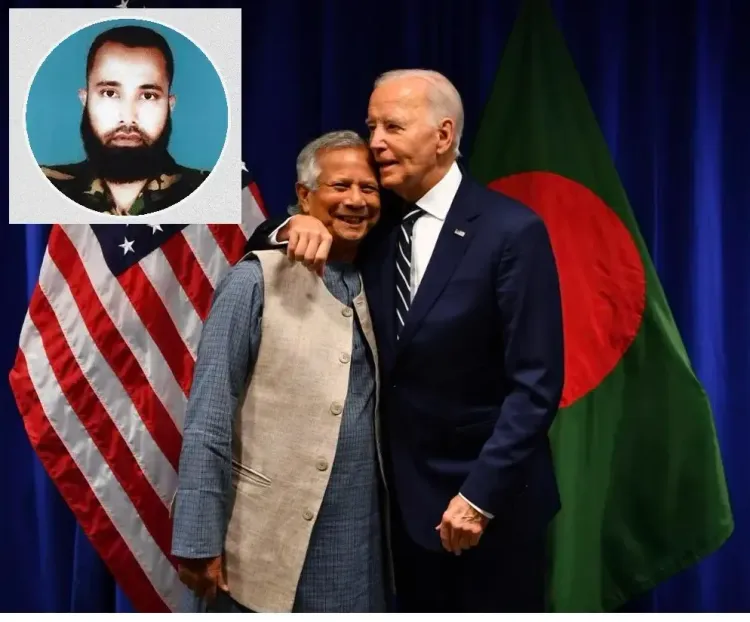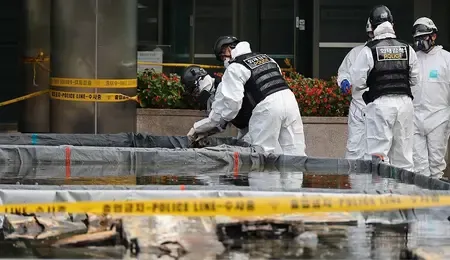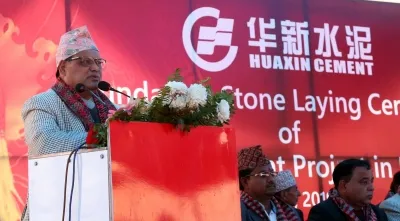Bangladesh's Yunus Administration Moves to Clear Convicted Terrorist Wanted by the US

Dhaka, Jan 7 (NationPress) In a move that raises significant concerns regarding radical elements in the nation, the interim government under Muhammad Yunus in Bangladesh is reportedly beginning the proceedings to exonerate Syed Zia-ul Haque, a former Major of the Bangladesh Army who is associated with Al Qaeda and is urgently sought by the United States.
In December 2021, the US Department of State's Diplomatic Security Service, via its Rewards for Justice (RFJ) program, announced a reward of up to $5 million for information leading to the capture or prosecution of Haque (also known as Major Zia) and Akram Hussain, who, along with four others, were implicated in a February 2015 terrorist attack in Dhaka that resulted in the death of US citizen Avijit Roy and left his wife, Rafida Bonya Ahmed, grievously injured.
Both individuals, who were visiting Dhaka to attend a book fair, were brutally attacked by assailants wielding machetes. Roy was tragically killed, while Ahmed survived with serious injuries.
The US State Department has indicated that the Ansarullah Bangla Team, a terrorist organization inspired by Al Qaeda operating in Bangladesh, claimed responsibility for the assault through its Dhaka unit.
Reports suggest that Zia, who allegedly escaped to Pakistan, was also being pursued by Bangladeshi authorities, who announced a reward of Tk 2 million for information leading to his capture in 2016, for his involvement in the murders of Foysal Arefin Dipon of Jagriti Prokashon and Julhas-Tonoy of Kalabagan. In 2011, he was also a key figure in a failed coup attempt.
As Bangladesh descends into turmoil following the collapse of the Sheikh Hasina government in August of last year, the interim administration led by Yunus appears to be granting substantial leeway to Islamist factions in the country. Recently, the previously mandatory security clearance for Pakistani citizens applying for visas was significantly relaxed, allowing Zia's return to Dhaka on a Pakistani passport just weeks ago.
Reports indicate that immediately upon his return, Zia submitted a formal request for exoneration from all accusations and removal from the 'most-wanted' list on December 29, 2024, while seeking to nullify all convictions and withdraw the bounty.
Interestingly, local news sources have reported that Justice Mainul Islam Chowdhury, the head of the disappearance committee of the International Crimes Tribunal of Bangladesh (ICT-BD) that will investigate this matter, is Zia's father-in-law.
"The Yunus administration has previously absolved other Islamist figures, such as Jashimuddin Rahmani, leader of the Ansarullah Bangla Team (ABT). Following his release, Rahmani publicly advocated for jihad in India and the implementation of ‘Ghazwa-e-Hind’. Such actions have provoked concerns regarding Bangladesh's commitment to counterterrorism and have ignited fears of the nation becoming a hub for extremist activities," noted Bangladeshi journalist Salah Uddin Shoaib Choudhury in BLiTZ.
According to Choudhury, the decision by the Yunus administration to consider Zia's request for exoneration could have profound consequences, potentially transforming Bangladesh into a launchpad for terrorism and destabilizing the entire region. It could also severely damage the country's already declining international reputation.
"The alleged backing of the Biden administration for Yunus has come under intense criticism. Detractors argue that this support was part of a strategy to counterbalance India’s influence in South Asia and empower Pakistan in utilizing Bangladesh as a base for terrorism and a hub for transnational drug trafficking. This support, critics claim, has emboldened Yunus to undertake actions that violate international standards, such as lifting visa restrictions for Pakistani nationals and acquitting known terrorists," wrote Choudhury, a prominent regional counterterrorism expert.
Analysts warn that Yunus is leading Bangladesh into deep disorder and chaos, with the nation potentially facing severe sanctions, especially after the new US administration takes office in Washington under Donald Trump later this month.









